To adapt marinades for sun-prepared meals, you'll need to make three key adjustments. First, reduce your standard marinade times by 25% and keep seafood under 15 minutes, chicken under 2 hours, and tough meats under 10 hours to prevent mushiness. Second, choose heat-stable combinations like citrus with olive oil or yogurt-based marinades with a 2:1 fat-to-acid ratio for ideal flavor transfer. Third, maintain food safety by using non-reactive containers kept in ice-filled coolers below 40°F, and avoid direct sunlight exposure while marinating. These foundational techniques will open up a world of sun-cooking possibilities.
Adjusting Marinade Cooking Times
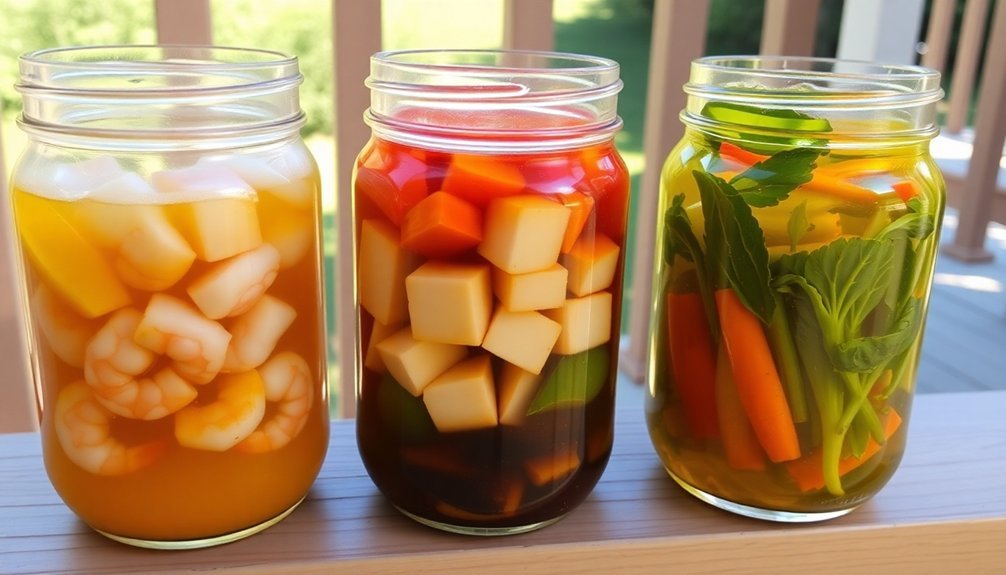
When preparing marinades for sun-based cooking, you'll need to adjust your timing precisely to achieve ideal results.
Since sun cooking can be gentler than traditional methods, you'll want to reduce your standard marinade times by about 25% to prevent over-tenderizing.
For fish and seafood, limit your marinade to 15 minutes maximum, while chicken should stay under 2 hours. Consider using glass containers only when marinating to maintain flavor integrity and prevent unwanted reactions.
If you're working with tougher cuts of meat, don't exceed 8-10 hours, even though conventional recipes might suggest longer.
Watch your acidic ingredients carefully – they'll continue working in the sun's heat, potentially making your protein mushy.
You'll also need to be extra vigilant with food safety. Keep everything refrigerated until you're ready to cook, and never reuse marinades without boiling them first.
Heat-Stable Marinade Combinations
Since sun-prepared meals require especially stable ingredients, you'll need to combine your marinade components thoughtfully.
Focus on pairing heat-resistant acids with appropriate fats and complementary flavors that won't break down under intense sunlight.
- Combine citrus juices with olive oil, garlic, and herbs for a Mediterranean-style marinade that holds up well in sunny conditions.
- Mix soy sauce with sesame oil, ginger, and black pepper for an Asian-inspired blend that maintains stability.
- Create a Latin fusion by blending tequila, lime juice, avocado oil, and red pepper flakes.
- Use yogurt with olive oil, garlic, and dried herbs for a creamy, stable marinade that tenderizes effectively.
Remember to reflect on your marinating duration when adding salt – either use it for very short or very long periods, but avoid the middle ground.
For optimal results with chicken breasts, aim to marinate for 12 to 18 hours to ensure thorough flavor absorption.
Sun-Safe Marinating Methods
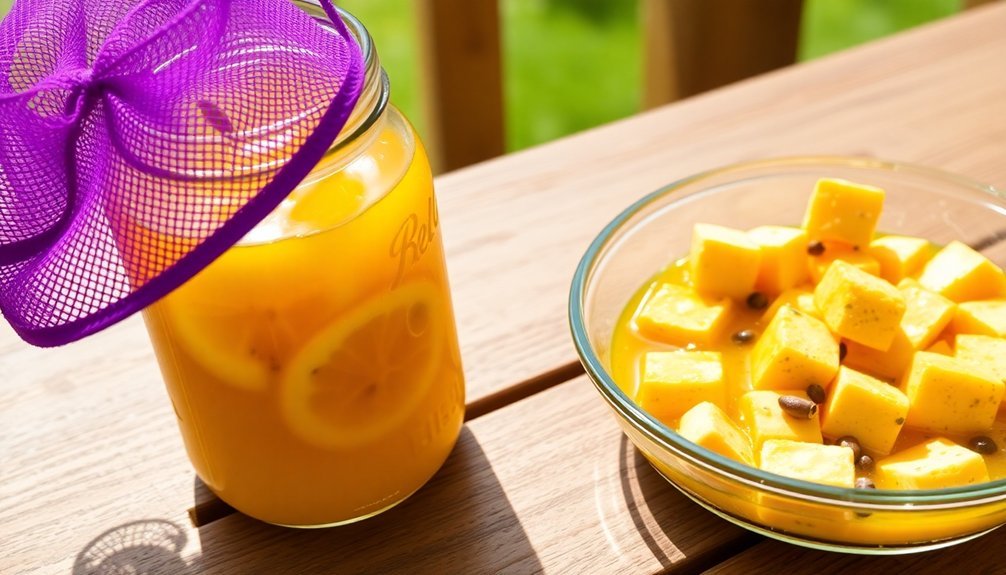
To guarantee food safety during sun preparation, proper marinating methods require careful attention to both temperature control and container selection. You'll need to use non-reactive containers like glass or ceramic vessels, and keep them in a cooler with ice while preparing your sun-cooked meals. Don't let temperatures rise above 40°F to prevent bacterial growth. A 2:1 fat-to-acid ratio will help ensure optimal flavor transfer while protecting against moisture loss.
| Safety Measure | Implementation |
|---|---|
| Container Type | Use glass or ceramic containers with tight-fitting lids |
| Temperature | Maintain below 40°F using ice-filled coolers |
| Cross-Contamination | Set aside fresh marinade before adding raw ingredients |
Remember to place your marinating container away from direct sunlight and monitor the temperature regularly. If you're planning extended marination times, make sure you've got enough ice to maintain safe temperatures throughout the process. Always use separate utensils for handling raw and cooked ingredients to prevent cross-contamination.
Frequently Asked Questions
Can I Reuse Marinade Liquid After Sun-Preparing Meals?
You shouldn't reuse marinade that's touched raw food, as it contains harmful bacteria. If you must reuse it, you'll need to boil it thoroughly until it reaches 165°F to kill dangerous pathogens.
How Do Different Altitudes Affect Sun-Prepared Marinade Effectiveness?
At higher altitudes, you'll need stronger marinades as food dries faster. You should increase marinade time and liquid content, since lower air pressure and humidity cause quicker moisture loss during sun preparation.
Which Containers Are Best for Sun Marinating Without Plastic Chemicals?
You'll get the best results using glass containers for sun marinating since they won't leach chemicals. Ceramic bowls with lids and stainless steel containers are also excellent alternatives that'll keep your food safe.
Do Seasonal Changes Impact the Choice of Marinade Ingredients?
Yes, you'll need to adapt your marinade ingredients seasonally. You can use fresh summer herbs and citrus in warmer months, while switching to heartier, warming spices and preserved ingredients during colder seasons.
Should Marinades Be Diluted Differently for Sun Preparation Versus Traditional Cooking?
You'll need to dilute marinades more for sun preparation, as concentrated marinades can over-tenderize meat in prolonged sun exposure. Aim for a 2:1 ratio of liquid to acid instead of the usual 1:1.
In Summary
You've learned three key ways to transform traditional marinades for sun-prepared dishes. By adjusting your timing, choosing heat-stable ingredients, and following safe marinating practices, you'll create delicious sun-cooked meals. Whether you're using a solar oven or direct sunlight methods, these adaptations guarantee your marinades enhance rather than overpower your dishes while maintaining food safety standards in lower-temperature cooking environments.
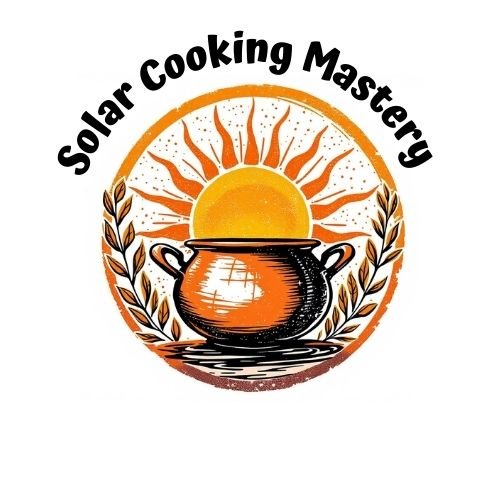
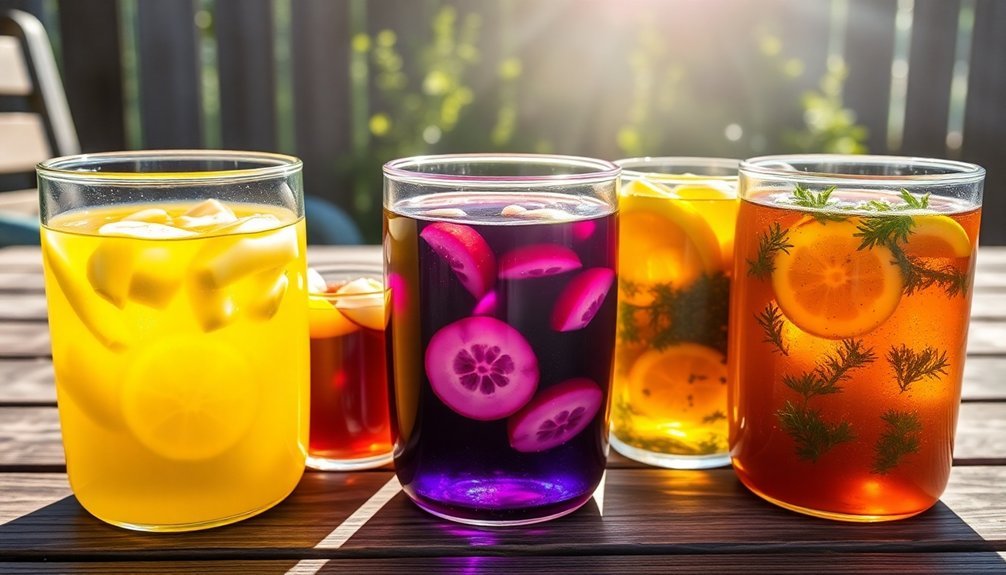
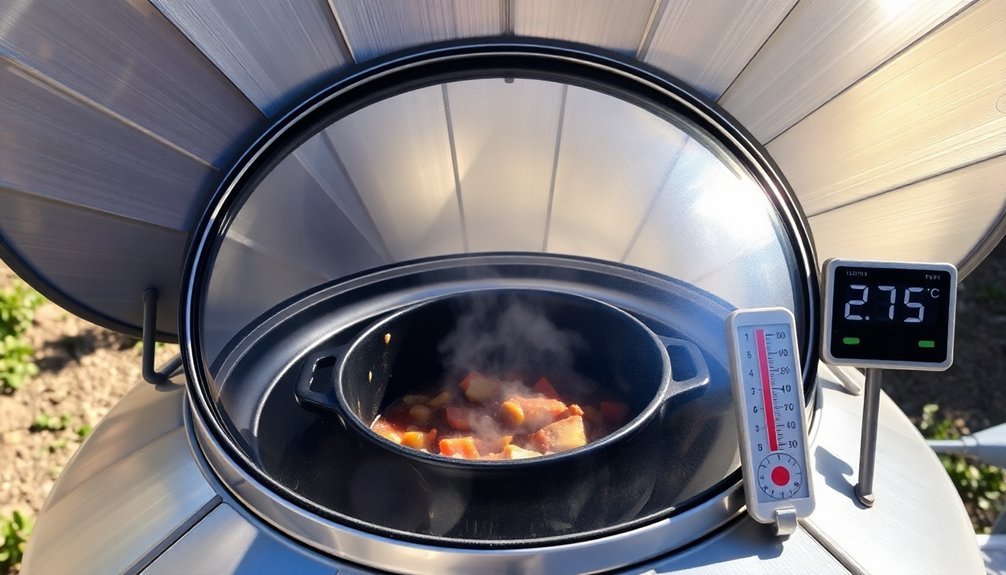
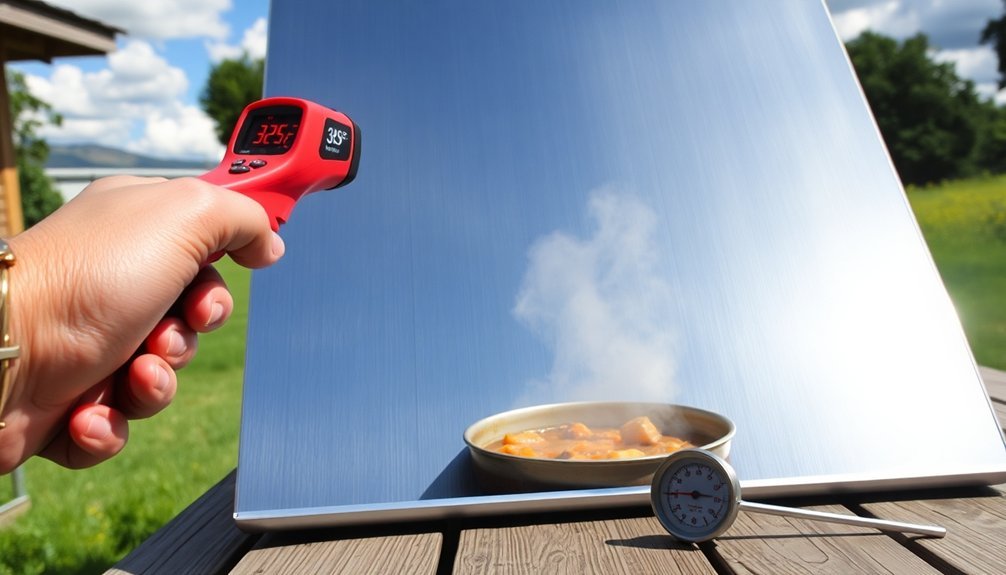
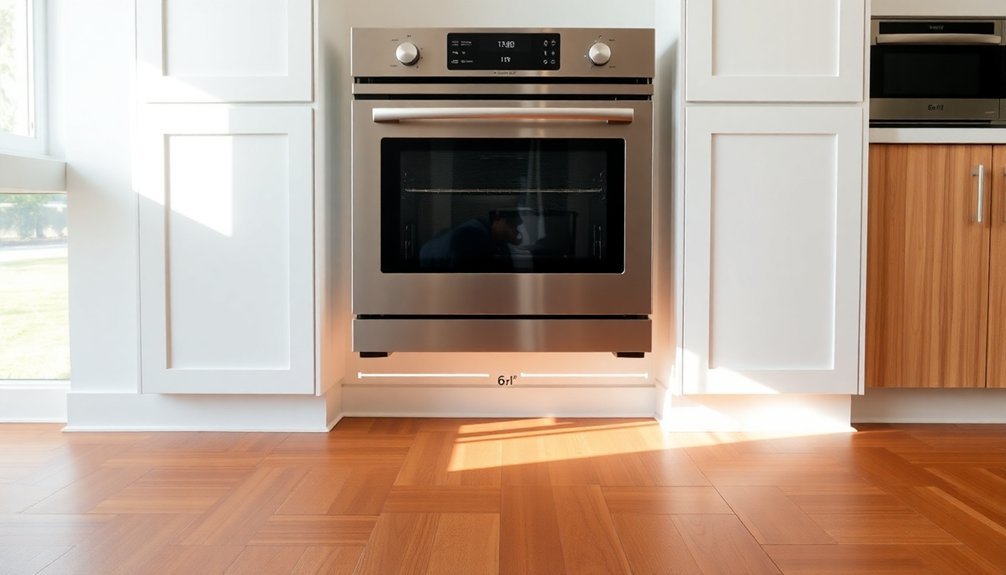
Leave a Reply